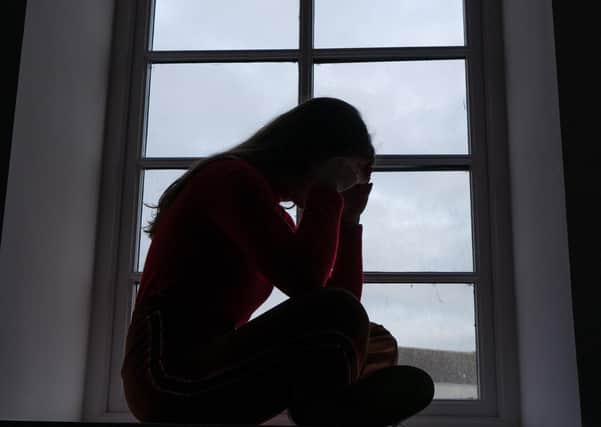Coronavirus may result in a mental health crisis – Martyn McLaughlin


One of the bittersweet ironies of the Covid-19 lockdown is the way it offers a chance to reflect on how the extraordinary technological innovations of the 21st century made it easier than ever before to live a solitary life, and what might become of this seemingly unstoppable trend once the pandemic is over.
It is perhaps premature to mull over questions of societal psychology when the pathogen is continuing to wreak havoc around the world, putting millions of lives at stake and inflicting untold hardship on the most vulnerable members of our communities. Curbing its spread and ensuring it does not further entrench those living in poverty have to be our primary concerns at the moment.
Advertisement
Hide AdAdvertisement
Hide AdYet in this time of a global health crisis, there is an unshakeable sense that a grand social experiment, unprecedented in its scale, is simultaneously playing out.
Loneliness has long been an ailment of modern life, a hidden epidemic in a world rich in choice, opportunity, and possibility, albeit one which has increasingly encouraged us to plough a lone furrow.
For those of us accustomed to life in one of Scotland’s urban centres, it has been possible for some time to play an active part in the city’s economy while skirting around the periphery of its bustle.
Food shopping could be ordered with a few swipes of a smartphone screen, while a dizzying variety of restaurant cooked meals could be purchased, and consumed, with barely a word said to a lone delivery driver – the only face you would see as part of your interaction with a rapidly expanding digital food marketplace, on course to be worth £150bn by 2025.
Even if you ventured out from your own wee nook, the advent of technology such as self-service checkouts ensured any dealings with other people could be, if not non-existent, then kept to a minimum.
Such a way of life no doubt fits happily into some of our routines, and all of us nurse our own little neuroses. But for me, it seems that relying on the crutch of technology to that extent affords little more than an existence. There is an emptiness to such a way of life, robbed of colour, sound, and joy. Digital sequestration may sustain the body, but the soul goes without nourishment.
A renewed appreciation of human contact
Now, having had no choice but to live solitary lives for the greater good, it is hard not to wonder what we will all desire – and what we will need – when we are once again able to exercise individual autonomy.
When normality returns (what an odd thing to read on April Fool’s, of all days) it will be intriguing to see whether these convenient staples of modernity – and all their attendant maladies – are rejected.
Advertisement
Hide AdAdvertisement
Hide AdDon’t get me wrong, I’m not hankering after some prelapsarian Brexiteer vision of jolly greengrocers and ruddy-cheeked milkmen. We would be considerably poorer at present without mobile phones, broadband, and messaging apps to help us keep in touch with family and friends around the world. But I do hope one of the societal legacies of Covid-19 is a renewed appreciation of human contact, of life beyond a screen.
There may be other far reaching benefits beyond our emotional wellbeing. Home working – a strange, discomfiting new experience for many just now, including The Scotsman’s journalists – will probably become far more prevalent, sparking a work revolution that will ease the burden we place on the environment.
The problem is, forging a new way of living may be more difficult than any of us realise. It is impossible to know the full extent of the harm an enforced spell of solitude will exact on our mental health.
Much will depend on the severity of the restrictions on our free movement, and how long they are kept in place.
Be in no mistake, however. They will be considerable, and likely cast a long shadow for years to come, as many of us come to appreciate the difference between solitude and loneliness.
In the Chinese city of Wuhan, where the coronavirus pandemic took root, there are already reports that some of the most severe quarantine measures have exacted a hefty price, with increasing numbers of people suffering from agoraphobia and post-traumatic stress disorder.
‘Honjok’
There are some societies which are more resilient than others to fend off this looming mental health crisis.
In east Asia, home to some of the densest metropolises in the world, an element of social distancing was hardwired into daily life even before Covid-19 struck, a cultural trend designed to appeal to those living cheek by jowl with their fellow citizens.
Advertisement
Hide AdAdvertisement
Hide AdAnyone who has been exposed to the wonderfully discombobulating way of life in Japan will know first hand the phenomenon of “low interaction dining”, where restaurants utilise automated ticketing machines and funnel their patrons into partitioned booths.
In South Korea, they have a word for it – honjok – which even when inelegantly translated, refers to a movement of people who favour their own company.
For those nations, the sudden, dramatic changes brought about by coronavirus may be easier to bear. Others, like Scotland, will take longer to face up to what has happened, and how it has changed us.
It is going to be difficult to meet that challenge. NHS mental health services, already under strain, will endure an extraordinary level of demand in the coming months, not least from healthcare staff at the frontline, and as long-established economic inequalities deepen, the queue of those seeking help will grow.
Addressing such pressures requires a mass effort unprecedented in living memory, and there is no sign of when it might end. A good start, however, would be to look through our screens and seek out the comfort, empathy, and reassurance of human contact. It will matter more than ever before.
